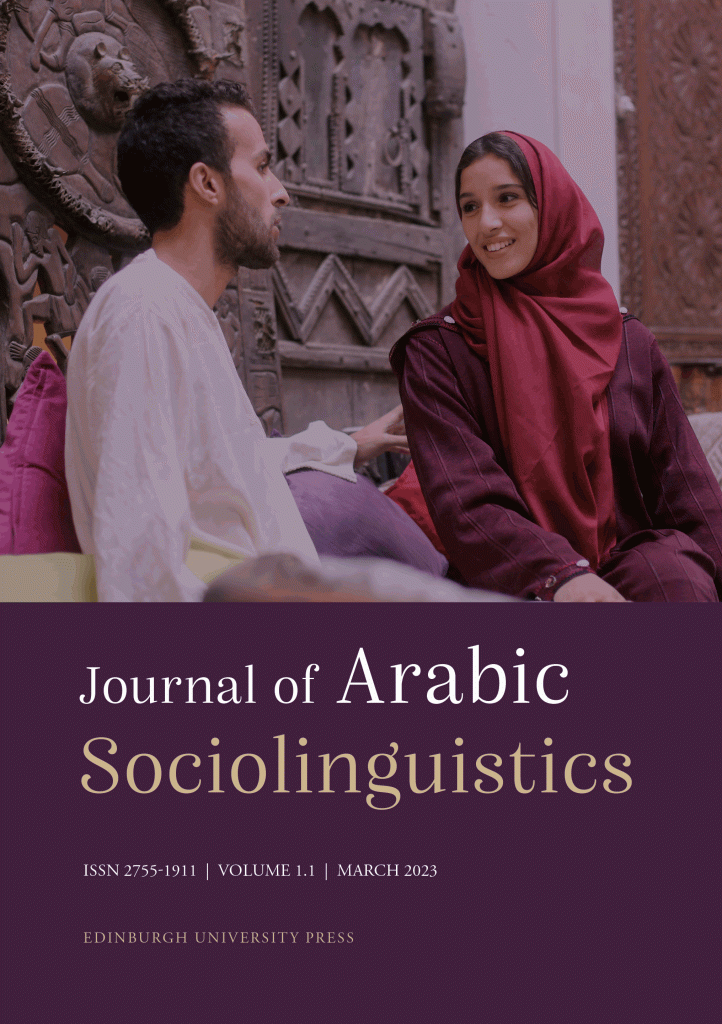
by Reem Bassiouney
When my monograph Arabic Sociolinguistics was published in 2008, it provided an overview of a growing, but still not widely recognized field of research. In the years that elapsed until 2020 (when the second edition of the same book appeared), the situation changed considerably. On the one hand, a new generation of scholars—including many native speakers of Arabic—brought the study of Arabic out of foreign language departments and into linguistics departments. At the same time, critical voices began to analyze and question established hierarchies, methods, and approaches in linguistics (e.g., Smakman and Heinrich 2015), while advocating for more systematic attempts to give a voice to scholars working on languages other than English.
Today, one need no longer argue for the importance of Arabic, a global language with more than 300 million speakers. Surely the study of Arabic will make important contributions to linguistics at large, and surely such studies will involve Arab scholars: In sociolinguistics today, one can no longer conduct research about languages in complete detachment from the societies which construct their very identities through those languages. In the subfield of Arabic sociolinguistics, researchers will need to look at their own motivations, biases, and political agendas with a critical eye. Finally, researchers will increasingly need to involve the work of Arab scholars living and working in the Arabic-speaking societies which they study.
In other words, the Journal of Arabic Sociolinguistics is on a mission. It is the first journal to focus on the relation between language and society in the Arab world. It highlights research which applies new theories and methodologies to Arabic data, while addressing a wider audience of linguists in order to engage them with findings from research about Arabic.
The journal deals with issues pertaining to the relation between linguistic variation and identity, variation and sociolinguistic variables (including but not limited to location, social class, education, age, gender, and urbanization), and variation in different political contexts. Articles may focus on code-switching in the Arab world, language policy, and the impact of diglossia, as well as issues related to pidgin codes in the Arab world. The journal also welcomes ethnographic, anthropological, and education studies, if they focus on language and linguistics.
The following topics fall within the scope of the journal:
- new theories that can be applied to variation
- identity and education
- political discourse
- language ideology and language attitudes
- perceptual dialectology and folk linguistics
- quantitative or qualitative data or mixed methods
- critical approaches to sociolinguistics
- refugees, migration, and language
- raciolinguistics
- historical linguistics if related to society
- computational linguistics, if related to society
- corpus linguistics
- syntax and semantics
- language acquisition
- discourse analysis and critical discourse analysis
I believe that linguistics is a much-needed field of research in the world today. By reflecting on our respective languages and identities, we linguists can contribute to understanding one another.
To celebrate the launch of the journal, we are offering free access to the first issue. Navigate to the issue homepage to access articles.

The Journal of Arabic Sociolinguistics is the first journal to specialize in Arabic sociolinguistics, concerned with the relation between language and society in the Arab world. The journal highlights research which applies new theories and methodologies to Arabic data, while addressing a wider audience of linguists, in order to engage them with findings from research about Arabic.
Find out how to subscribe, recommend to your library, and sign up for Table of Contents alerts.
About the editor

Reem Bassiouney is an Egyptian professor of sociolinguistics and Chair of the Department of Applied Linguistics at The American University in Cairo. She is the editor of the Routledge Series of Language and Identity. Bassiouney is also an award-winning novelist.





